For UConn School of Business professor and researcher Ryan Coles, participatory economic development happens everywhere – even in the Himalayas of Nepal. Coles, undergraduate student Jonathan Heiden ’24 (CLAS), and the philanthropist and UConn alum Peter Werth III ’80 (CLAS) trekked to 17,000 feet earlier this year to bring modern research to a growing startup focused on a unique local product: yak cheese. (Video by UConn)
You can’t get to the yak cheese factory by car or train or bus.
Instead, you walk.
Striding alongside a never-ending blue river. Climbing narrow cliff-side pathways. Traversing sandy terrain, where the ground slips out from beneath the soles of your boots with every step.
You can ride a small horse for part of the way, until you travel beyond where the trees will grow, high up into the mountains. There, the air is thin and snow still caps the Himalayas well into June. It’s not just the trees that start to disappear – nothing much seems to live there at all.
But you walk farther still, a trip taking a total of six days, to over 17,000 feet above sea level – not quite the top of the world, but getting there – to a place where few people at all, let alone Americans, have ever set foot.
It’s there, in the Upper Dolpa region of Nepal, where you’ll find the cheese factory, and the animals that help to fuel a local economy for the people who rely upon them – herds of semi-feral yak that offer both sustenance and livelihood.
And it’s there that a UConn professor, a UConn undergrad, and a UConn alum traveled together this year to bring their research on economic development and entrepreneurship to a growing business in one of the most remote places on Earth.
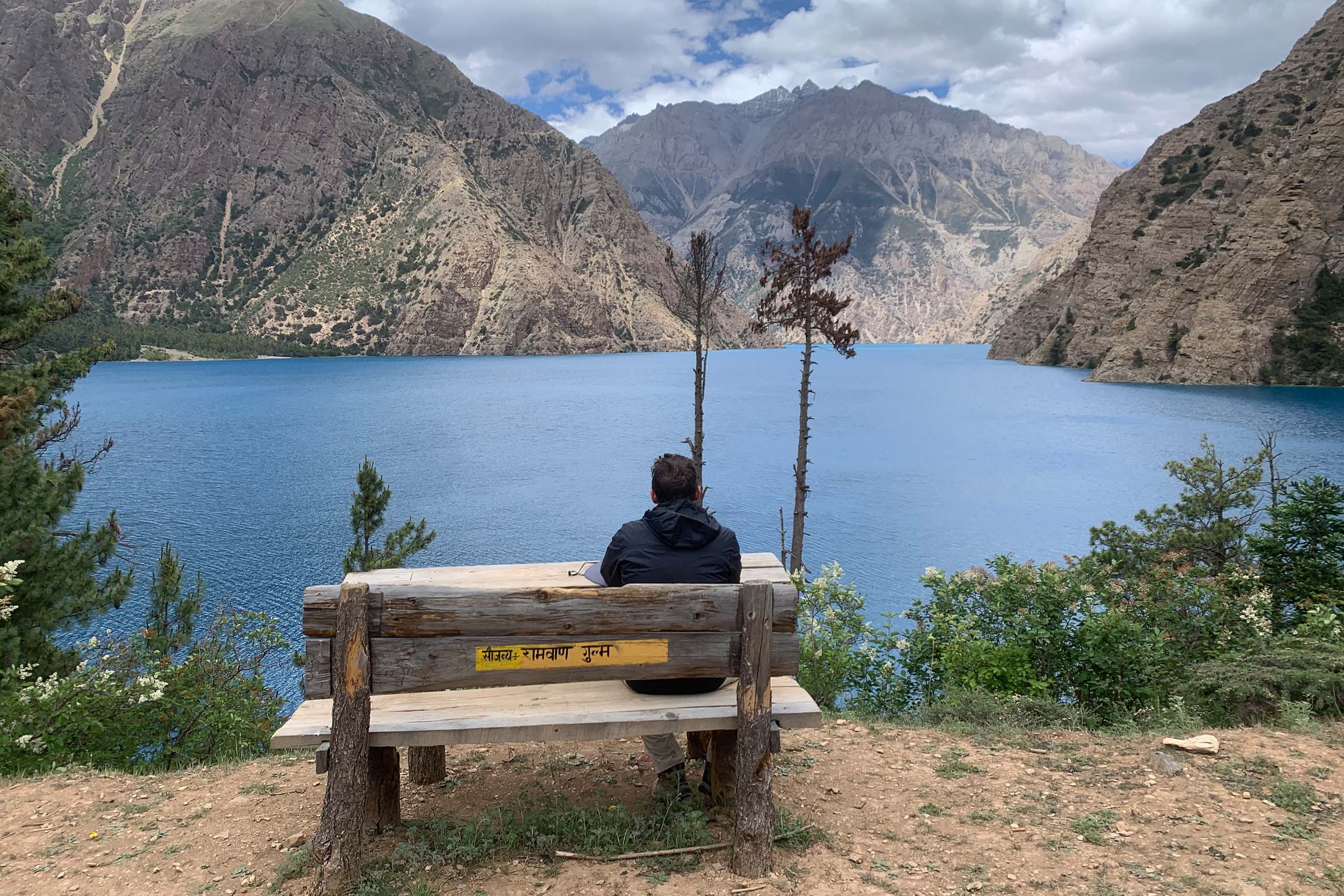
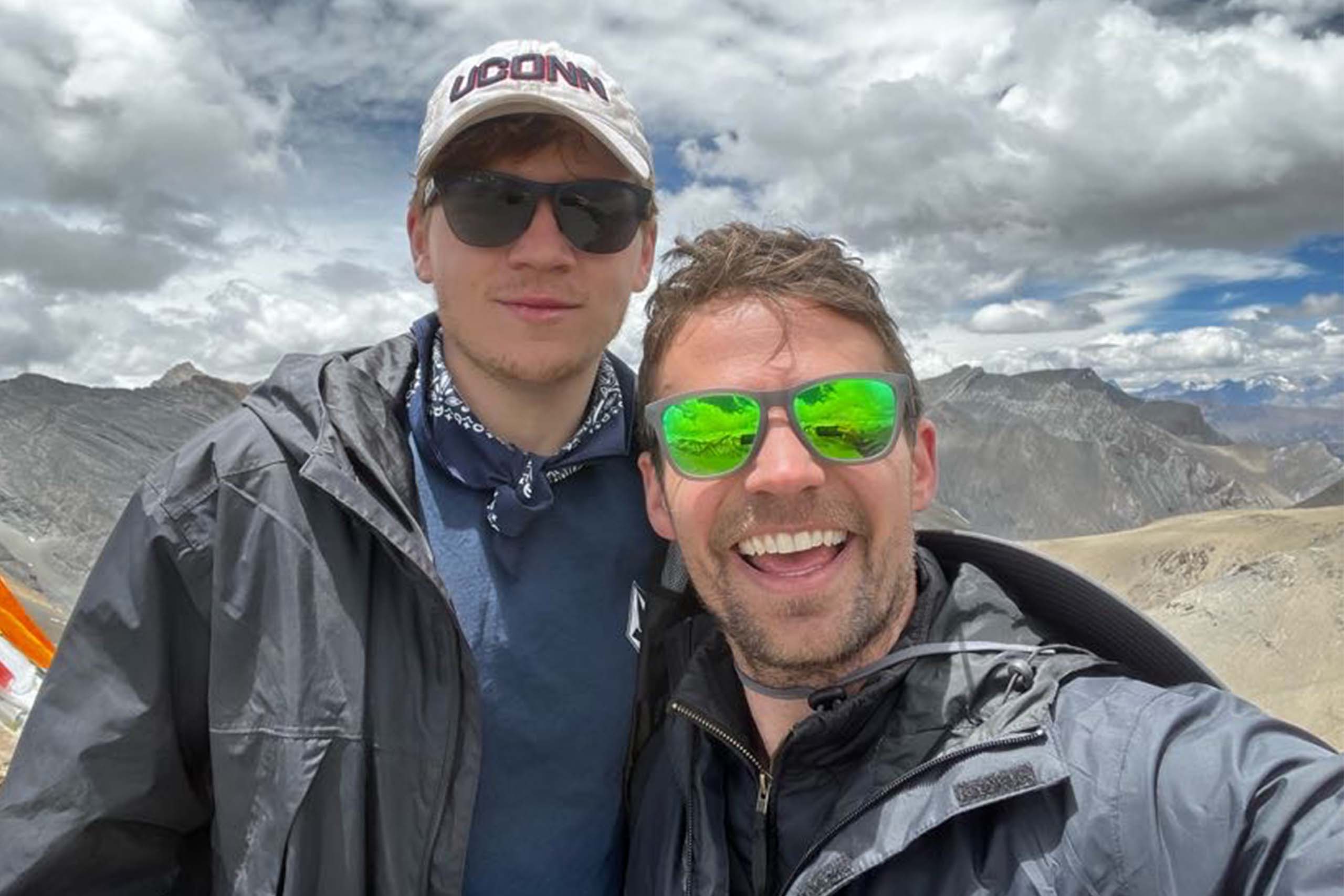
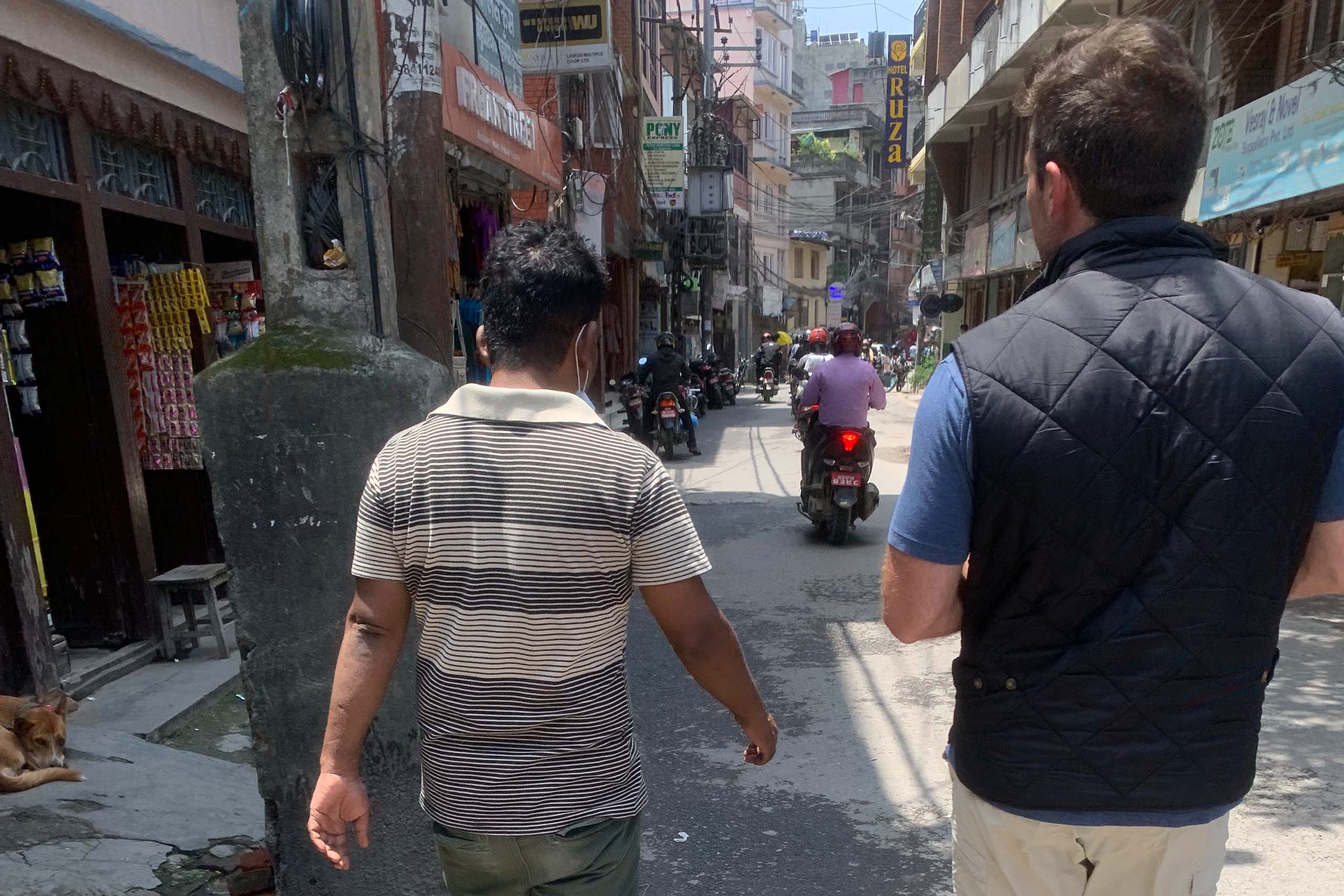
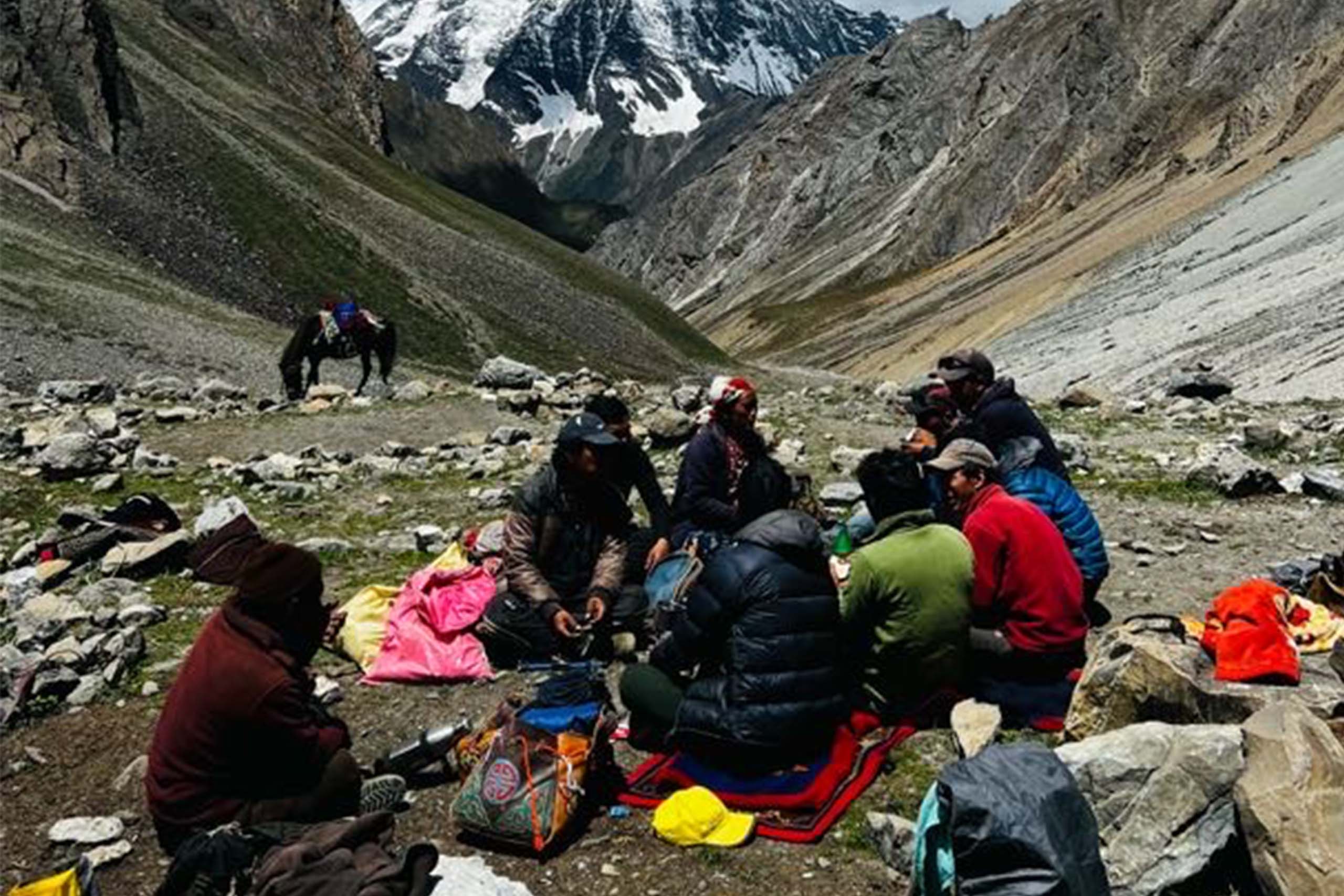
‘That is Risky’
Ryan Coles, an assistant professor of management and entrepreneurship in the UConn School of Business, has earned what he calls a “quirky” reputation.
“I think a lot of entrepreneurship professors are looking at high-tech companies, and how to predict the next unicorn. I was always more like, screw that,” he says. “Don’t talk to me about how hard it is to start your unicorn in Silicon Valley. What about a person in a violent community in Mexico trying to start and grow a business? That’s way riskier. Or what about the refugee arriving to a completely new country? Or what about people living the Himalayas, in some of the most remote places in the world? That is risky.”
Coles is the chief scientist of Daigle Labs, an applied entrepreneurship lab born out of a desire to spur economic activity and tech entrepreneurship in Connecticut, and to use insights from research on business and management to improve economic productivity around the world.
The lab’s research and advisory activity focuses on small and medium-sized enterprises, or SMEs, that operate both domestically and globally.
“SMEs are the organizations that most people around the world interact with,” Coles says. “Everyone around the world – the seven, eight billion people right now – most of them are working with organizations that have between one and ten employees. And those are the businesses that are responsible for 43 to 53 percent of CO2 emissions. So, when we think about how we help people improve their economic livelihoods, how we help develop a more sustainable economy, we’ve got to work with SMEs.”
A feature of Coles’ signature form of participatory economic development is hands-on, on-the-ground collaboration with local business owners, communities, workers, and schools to first learn about their culture, their business, and their needs, and then help with training, planning, and management expertise so their businesses thrive and grow.
“When you show up with a vague idea of what could help, and you get people involved locally, that’s when you get power and human connection,” he says, “ and that’s why it’s important to me that my lab does participatory economic development alongside great research.”
The lab was already collaborating with SMEs and other organizations in Jordan, Palestine, Saudi Arabia, and Israel when Coles got an email about the yak cheese factory in Nepal.
‘Real-world Impact’
“I got an email from David Noble, and I think the subject headline was ‘Yak Cheese,’” Coles recalls.
Noble, the managing director of UConn’s Werth Institute for Entrepreneurship and Innovation who knew of Coles’ “quirky” reputation, had been asked for help by the philanthropist and UConn alum Peter Werth III '80 (CLAS) and his nonprofit organization, Himalaya Currents, which works to support community development efforts in Himalayan villages.
“Peter was working with this yak cheese factory in one of the most remote human villages in the world,” says Coles. “I had that weird reputation of working with SMEs in extreme contexts, so I think David told Peter, ‘This is the guy you want involved in your project. He does this stuff.’ Peter and I had alignment on vision, and also I was willing to hike out there. I was also lucky enough to have a student, Jon Heiden, who was willing to go and make the trek with me, to help me.”
Jonathan Heiden ’24 (CLAS) transferred to UConn as a sophomore. He’s studying political science and Arab and Islamic studies, and he met Coles before he had even decided to transfer.
“I met Ryan on a FaceTime call, and he told me to join the lab after 15 minutes of talking – so, that’s Ryan for you,” Heiden says. “But I joined Daigle Labs, because the opportunity to create real-world impact using research was extremely intriguing and represented a step forward in academics, but also for myself and my future career.”
For Heiden, the opportunity to climb mountains, learn about cheese production, and help a community grow was hard to say no to.
“Truthfully, we didn’t know exactly – until we got there – how epic the trip was going to be,” he says. “But, I think that at first, when we heard the stories from Pete Werth, and he was talking about the area and what we would be seeing, and it was hard to say ‘I don’t want to be a part of that.’”
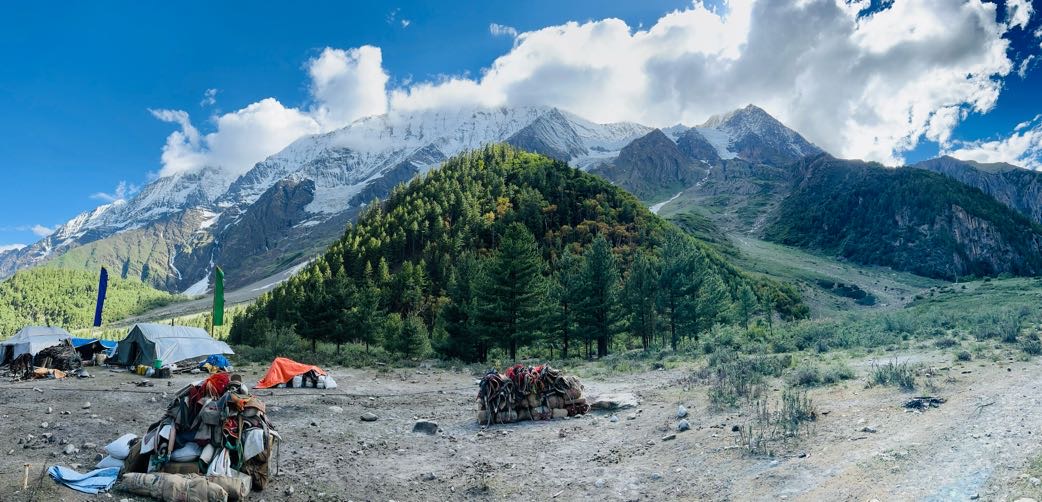
‘They Kept Me Going’
The trip started in June 2022, at Logan International Airport in Boston – a modern, industrialized, and Western city – when Coles, Heiden, and Werth flew commercially to Nepal’s capitol city, Kathmandu. There, electric-powered motorbikes and automobiles share the city’s main thoroughfares with shepherds herding goats and sheep.
“The interesting thing about cities in the developing world is that you see modernity come right up against antiquity in a way that you don’t have here in the U.S.,” Coles says. “If you’re on the west coast, a house or a building that was built in the 1970s – that’s old. Here in the northeast, you’re going to probably balk at that – that’s not old. We’ve got a lot of houses from the 1700s. And when we have a house or a building from the 1700s, we put a rope around it. We have a historical sign, and people take tours.”
Coles continues, “When you go to a place like Nepal, you’ve got structures that are thousands of years old, and they still live in them, or they still operate businesses in them. And that’s the difference. History is close in places like Nepal, in a way that we don’t experience here.”
From the bustle of Kathmandu, they headed to the Nepalgunj Airport where they boarded a small airplane to the Lower Dolpa region, landing on an airstrip no longer than an aircraft carrier, bordered by cliffs.
“That plane wraps around and lands, and you just hope it gets the distance right so that it doesn’t fall off the other side,” Coles says. “Now, there is no phone service. There is no internet anywhere. We were lucky that Pete’s got his satellite phone, but at that point, you’re really in a new world.”
But in Nepalgunj, Heiden got sick.
“I spent overnight, one of the worst nights of my life, just praying that the next day, when we started our hike, that I would feel better,” he says. “And I didn’t. I did not feel better.”
Even with how terrible he felt, Heiden pressed on, one foot in front of the other, as the team began their hike into the Himalayas. They started at 9,000 feet and hiked for eight-to-ten hours per day, following the mountain river, traversing valleys, passing by waterfalls, listening to far-off avalanches cascading from even loftier peaks, stopping in ancient Buddhist temples, riding horses on narrow cliff-side passes, and sleeping along the way in so-called tea houses – sometimes on cots, other times on floors – with Nepali locals who hosted them.
“We started our hike, and really for the first five days, I was sick,” says Heiden. “We’re going up these massive pitches, and the ground is like sand, and there are times when I legitimately could not lift my leg because I was so tired and I felt so bad. But I think that was a really valuable experience, because there really was no turning back. I knew that eventually I was going to feel better, so just pushing through that – I’m grateful for the people who were with me. They kept me going.”
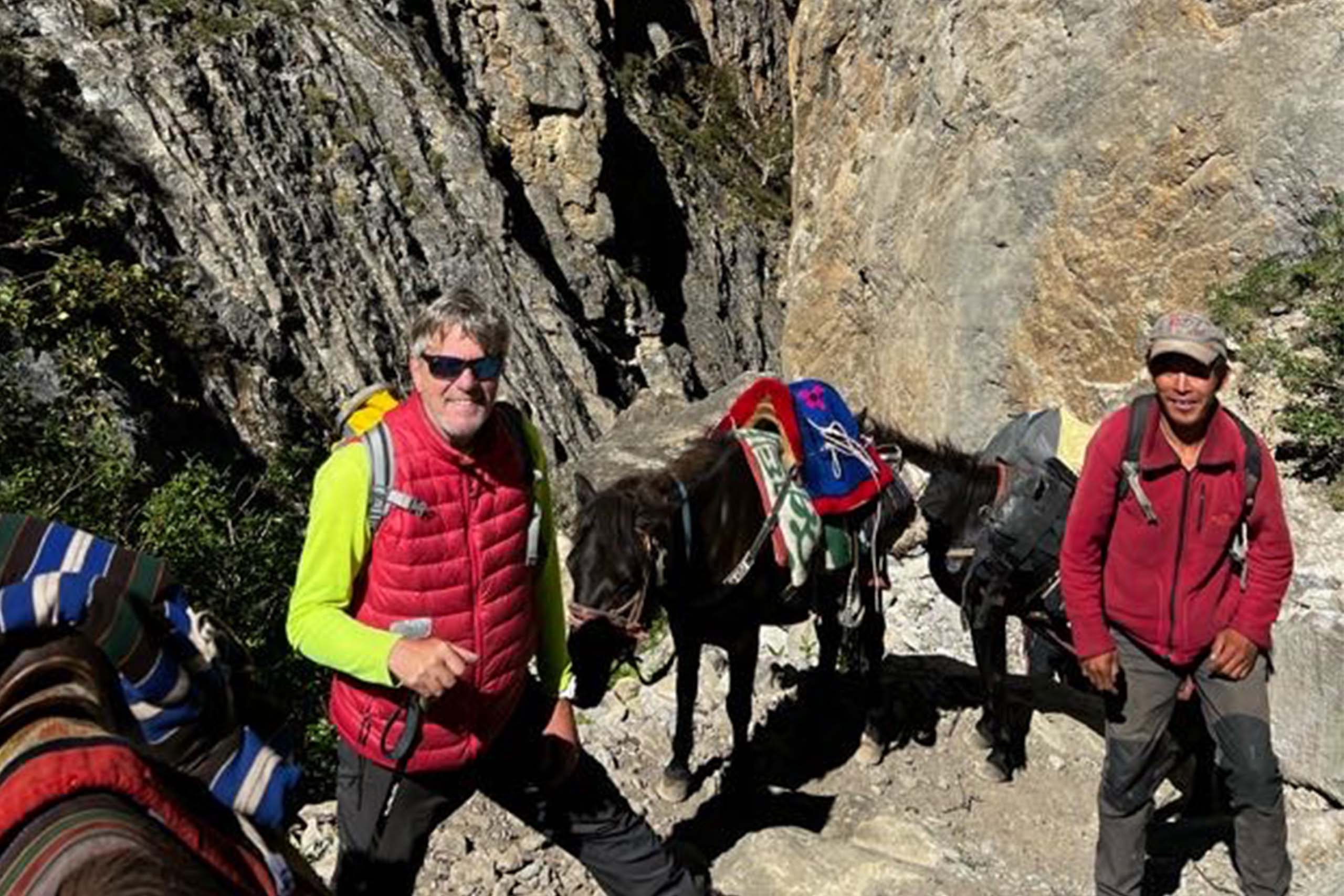
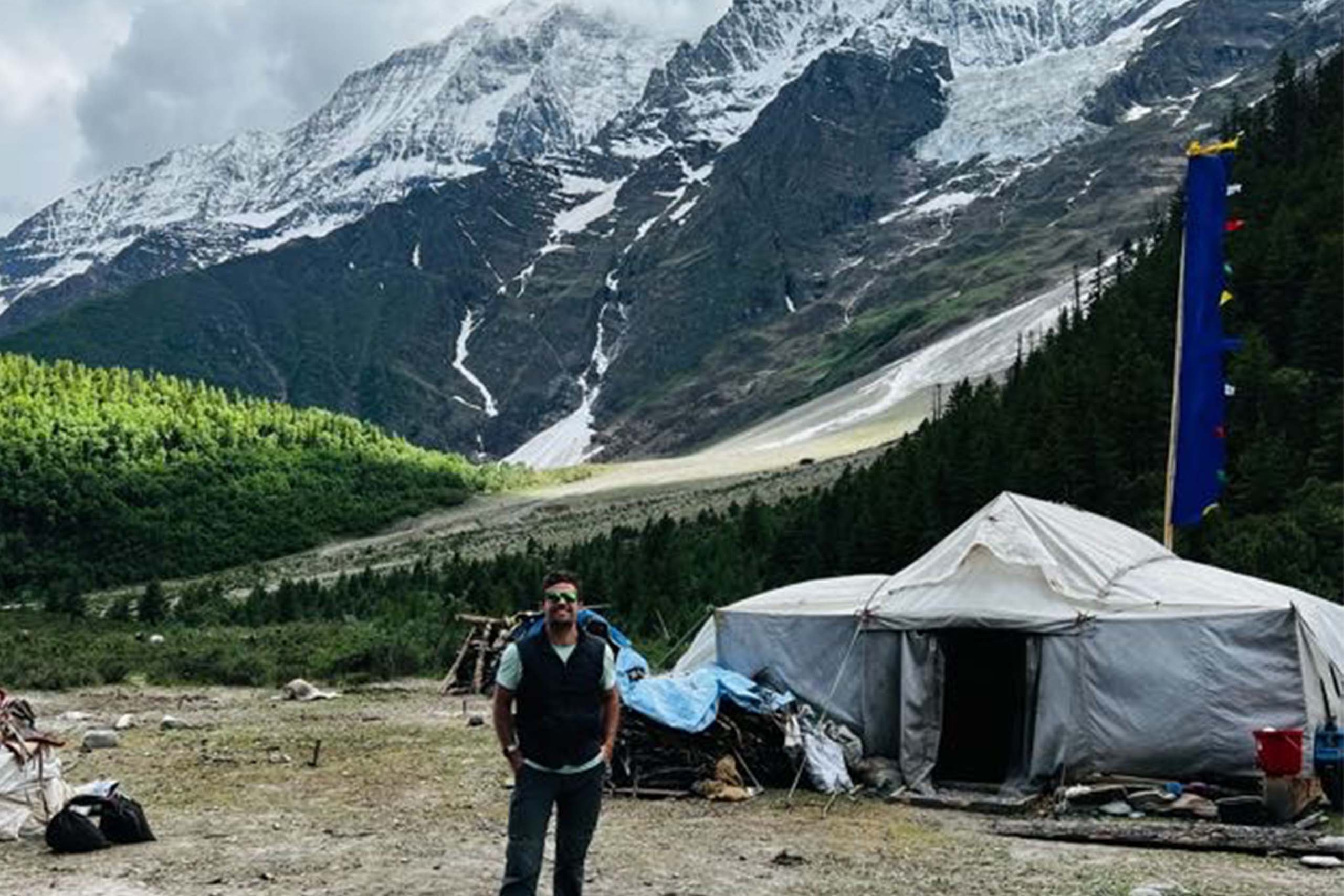
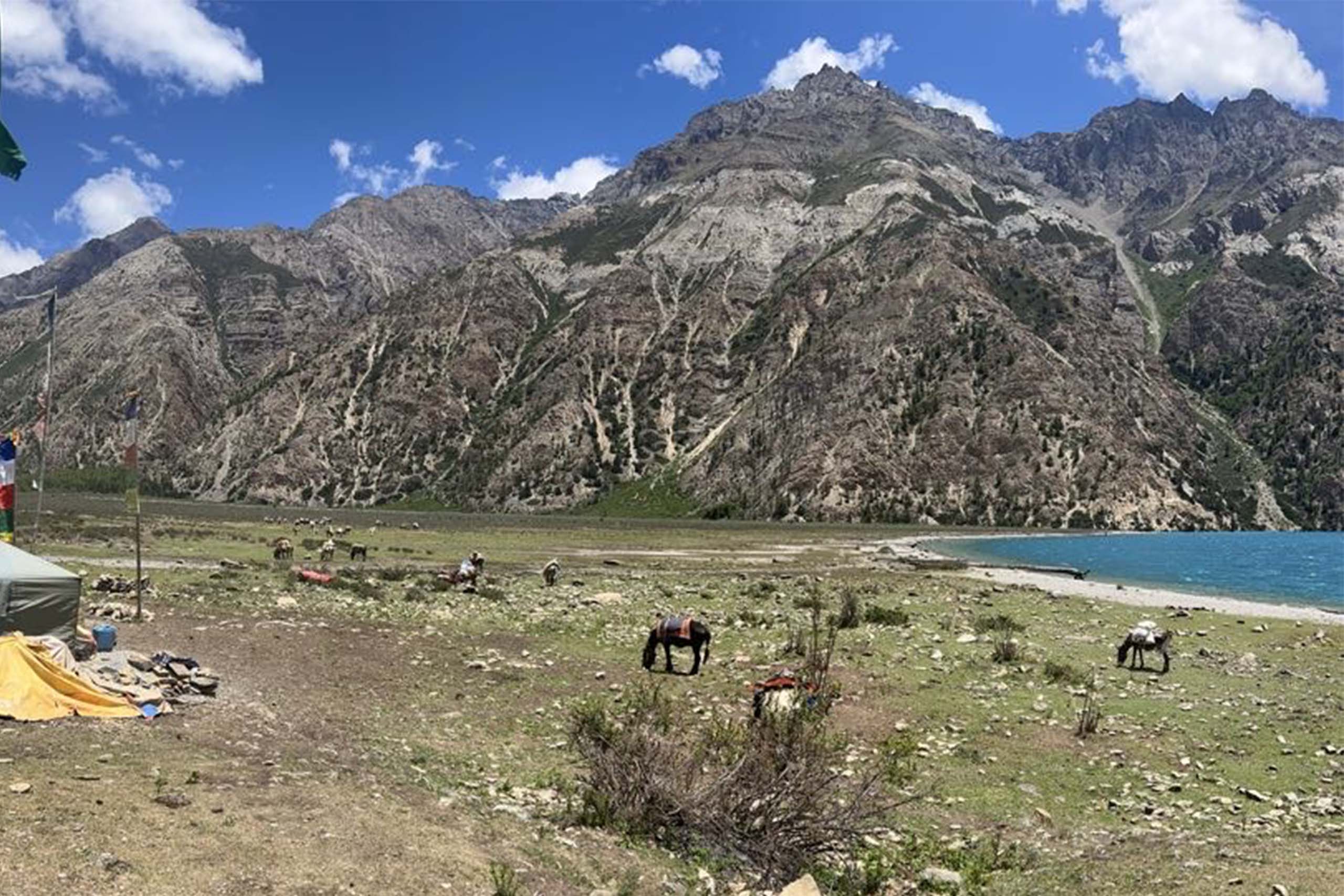
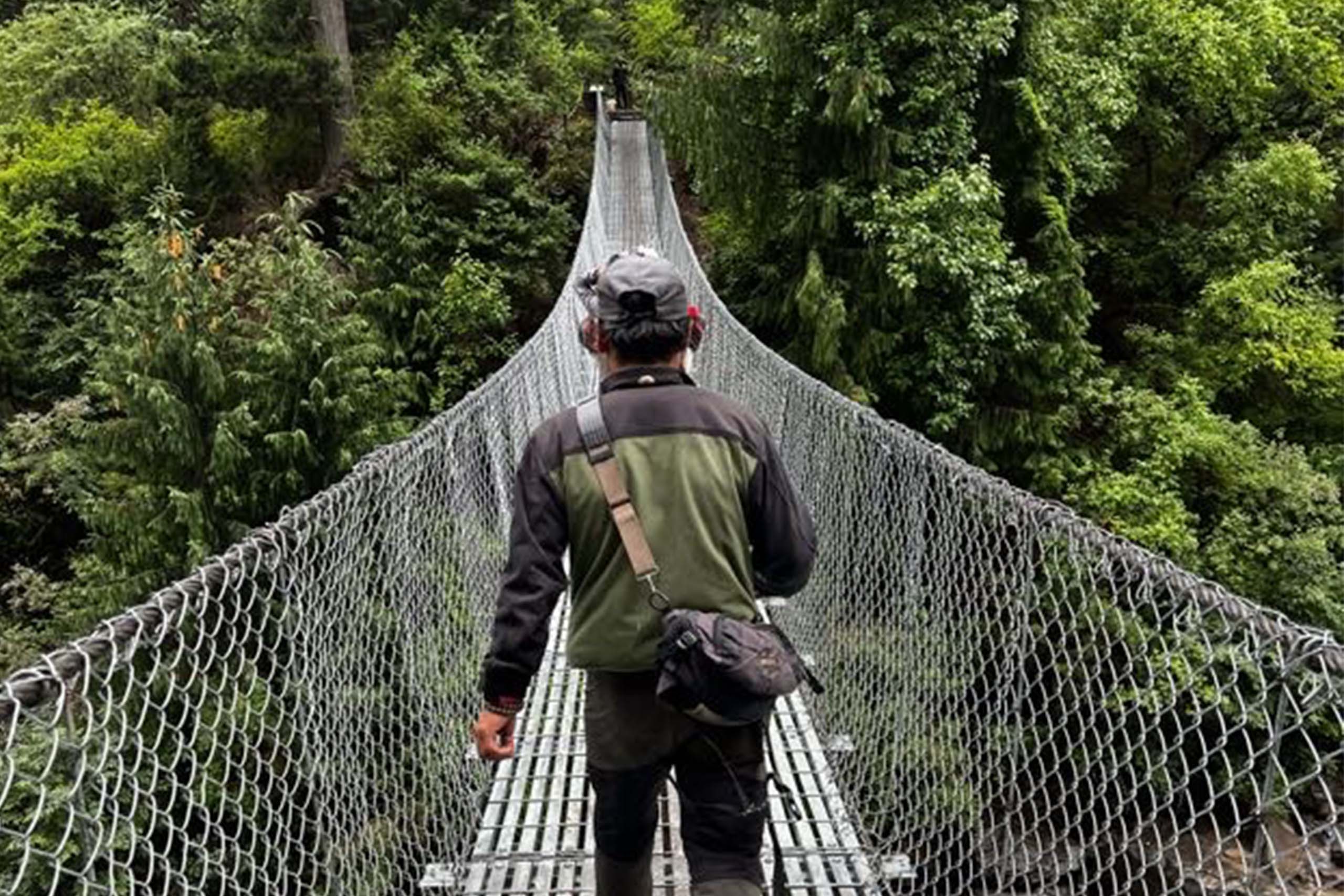
‘Vital to the Economy’
The team climbed to over 17,000 feet before reaching the yak cheese factory. Nepali yak only live and produce milk at higher elevations, they learned, and the local communities rely on their herds for survival in the remote mountains.
“Yaks are a fascinating animal,” says Heiden. “Semi-domestic, so they’re a little wild – not the nicest animals. But they’re vital to the economy, to the people, and they represent the lifestyle of these people. Without these yaks, it would be pretty much impossible to live up there, and that comes down to using even the dung for fuel, for energy.”
Located in the village of Bhijer in northwestern Nepal, the yak cheese factory is a community endeavor – its founder hopes to help support the local school and medical center with profits from cheese making, and more than 40 Nepali women from across the countryside supply the factory with the containers of fresh yak milk necessary to craft the cheeses.
“It’s got a unique creamy composition,” says Coles, “and I’ve tried now yak milk-based chocolate, yak milk-based yogurt, the milk itself, and cheese, and it's actually all really good.”
The team spent their first day at the factory observing and asking questions, learning all about the process for collecting milk, testing it, pasteurizing it, and making it into cheese.
“When the women bring in their yak milk, the composition is tested several times, it’s rigorously recorded,” Coles says. “They’ve got to make sure that the whole space where it’s produced is extremely clean. They’ve got a whole process to make sure each person who walks in and out is extremely clean and wearing the proper kind of gear. The cheese itself can sit for a whole day to cure before its ready.”
Just as important as understanding the cheese-making process, though, was understanding the people making the cheese.
“In the past, we tended to focus on where the founder lacked skills and helping him improve skills in that area,” explains Coles, “and what we’ve found in recent research is that it’s actually better to take a different approach. We figure out the founder’s skills and interests, and find ways to bring in people to do the other stuff so that everyone can focus on doing the things that they’re good at and what interests them. When you do that, young startups increase their revenue much faster.”
“We went out there, engaged, saw their processes, saw everything from how they test the milk to the actual production to where they store it, everything,” says Heiden. “And then, we also sat down and went through all the financials, everything, set goals. They had goals, but how do you achieve those goals? We also engaged with the local town to learn what they think this place needs to be and what it is already to people – developing solutions for this yak cheese, to have a better understanding of a remote business like this, but also to make it more successful and really fruitful for the community.”
They learned that the factory had a goal of dramatically increasing their production from 200 kilos last year to 2,000 kilos this year. But what if they couldn’t? Or what if they couldn’t sell their cheese after producing so much?
“You could have a dynamite year going from 200 to 800 kilograms of cheese production, and that’s great if you sell it,” Coles says. “That’s a lot of growth. But, it won’t be seen that way if you told your stakeholders that the goal was 2,000. It’ll look like a failure.”
Coles and Heiden found that the factory needed help to build a system where the founder could focus on his strength – making cheese – and while others would focus on sales.
“We started to develop a sales system where they could hire salespeople who worked 100-percent off commission, so that they could focus on selling the cheese. That meant the founder and his team could double-down on producing cheese,” Coles says. “I think that basic shift really helped out. This year they’ve produced over 800 kilograms of cheese. Peter Werth was great on the customer-segment side. He was able to get them connected with The Kathmandu House, which is a major hotel in Kathmandu. The hotel going to be a client and buy cheese from them.”
Now Daigle Labs is working to help the factory buy a dirt bike – one of the most urgent things the business needs right now, Coles explains, because there are no roads, no trucks, and no easy means of reaching the yak herds.
“This sounds weird, but in this context, you have to remember that the introduction of something basic like a dirt bike makes a big difference in terms of business productivity,” he says. “Getting them a dirt means they can ride out to more places and bring in more milk to make more cheese.”
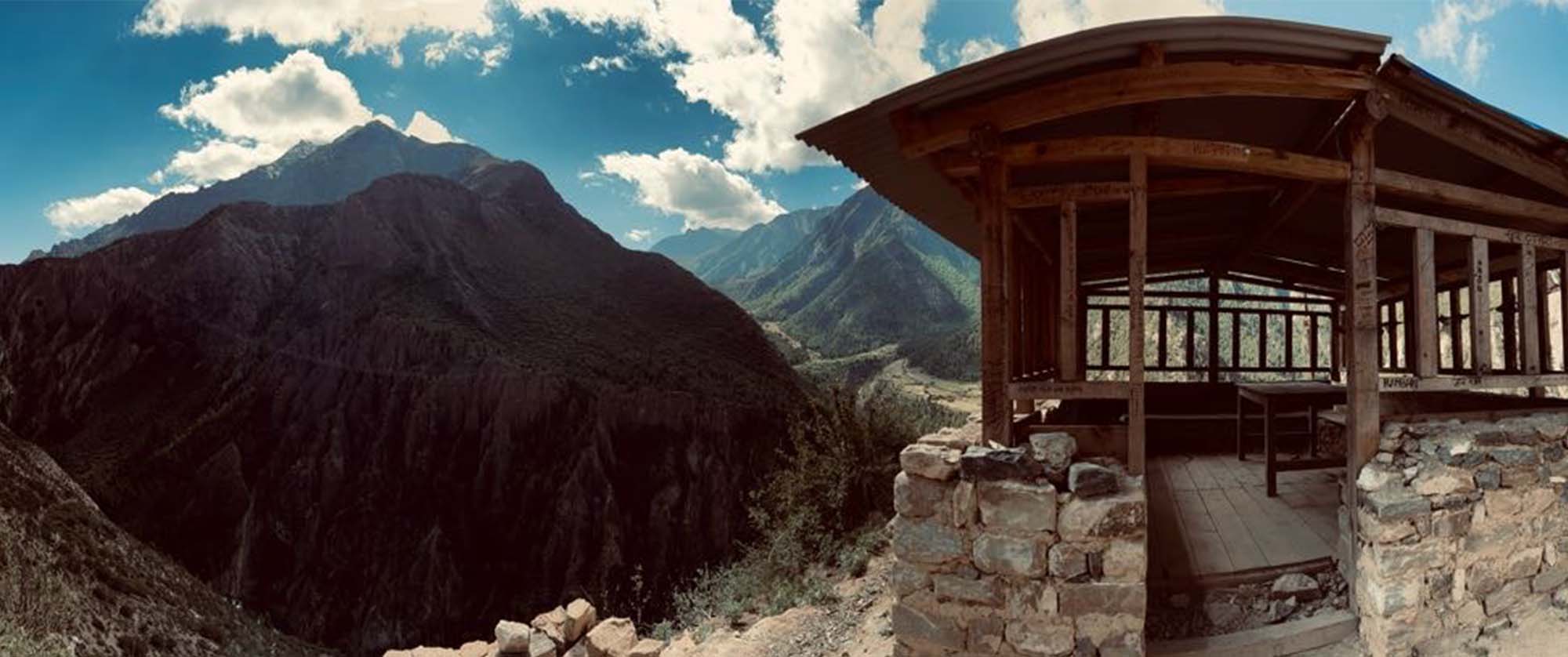
‘We Have a Mission’
After a month in the mountains, it took time for Coles and Heiden to readjust to the city atmosphere in Kathmandu.
“Taking that shower for the first time, or walking out to a restaurant and ordering a meal, you know, it was interesting, we didn’t even talk much,” Coles says. “It was just awkward to be back in civilization.”
Their collaboration with the yak cheese factory, and the people of Nepal, hasn’t ended with their return to Storrs, though. Daigle Labs is now partnering with GATE College at Kathmandu University to develop a permanent Daigle Labs SME global development program in the country.
The lab is also embarking on new projects in other countries in Southeast Asia – Coles is bringing his form of participatory economic development to Vietnam next year – and he says that one of his favorite aspects of his work is the ability to learn while also teaching.
“Whenever I go to a new location, it’s culturally unique in some way,” he says. “I‘ve got my built-up expertise that I can apply and help with, but then it’s reciprocal – I learn something new from the new context. Then I tweak what I know about how to help businesses in some way. I enjoy having a new space in the world where I can connect with people and make new friends.”
That human connection was also important to Heiden, who says his favorite part of the journey was meeting the people of Nepal.
“The scenery was obviously incredible, but I think without the people, it wouldn’t have been quite as magnificent as it was,” he says. “Going on this trip provided me with the strong desire to understand the unknown, especially when it comes to cultures and people. I think we often have our own understandings and information about cultures, about places, and we’ve never been there. I think going there really tests all of those assumptions, and it’s something that I want to do for the rest of my life, to develop better understandings of people who are very different from me.”
The trip, Heiden says, made him a better person by challenging him in all the best ways – challenging his assumptions, his mental toughness, and his concept of entrepreneurship.
It’s that kind of learning, Coles says, that students will never forget.
“If you want to understand economic development, it is important to understand the research behind it. But there’s nothing like doing economic development on site with a student next to me, and saying, ‘Ok, from our research we know this, so let’s go apply it,’” he says. “Now, that student understands the research findings more deeply because we are actually applying that research, and then we’re learning how to build on that research.”
Coles’ work is also fitting, he says, given UConn’s identity as a public land-grant university with the enormous responsibility to make sure that research is put to use for economic and social benefit.
“We have a mission,” says Coles. “We are UConn. We are a land-grant university, and we are a public university. We are not going to just publish science and leave it in an academic journal. We are going to take it out into the world, and we are going to put it to use. It doesn’t matter where it is. It doesn't matter how hard it is to get there. Our alumni, our students, and our faculty are going to climb whatever it takes, and go as far as it takes, to take our knowledge to people all over the world and use it to help them have better lives.
“It’s inspiring, and it’s why I love working here.”


